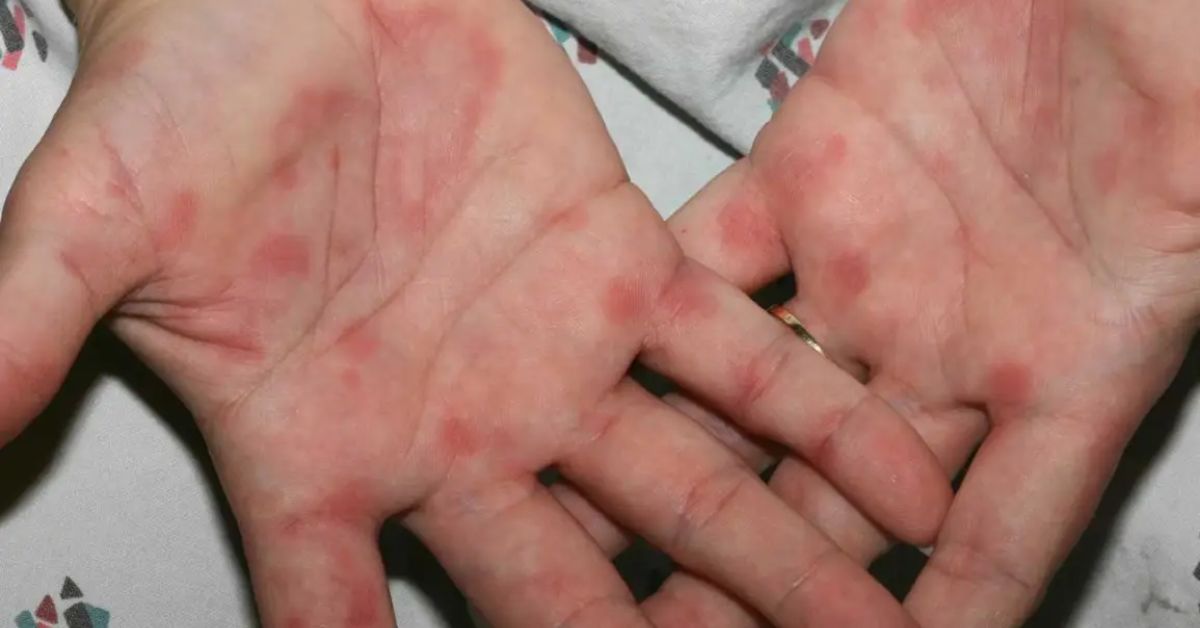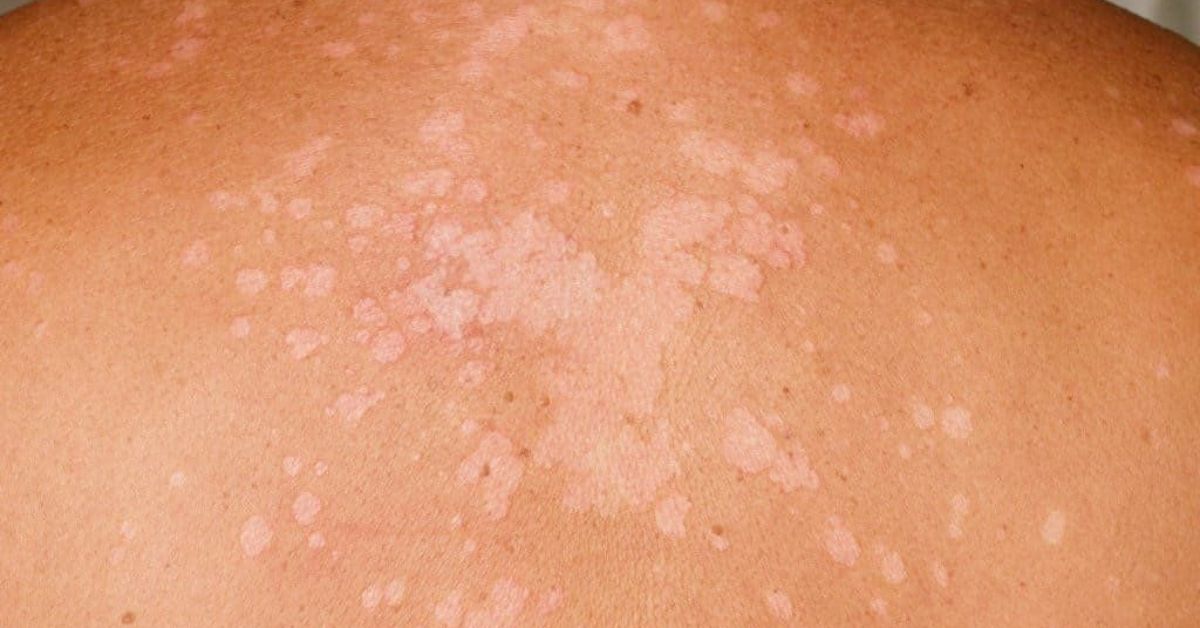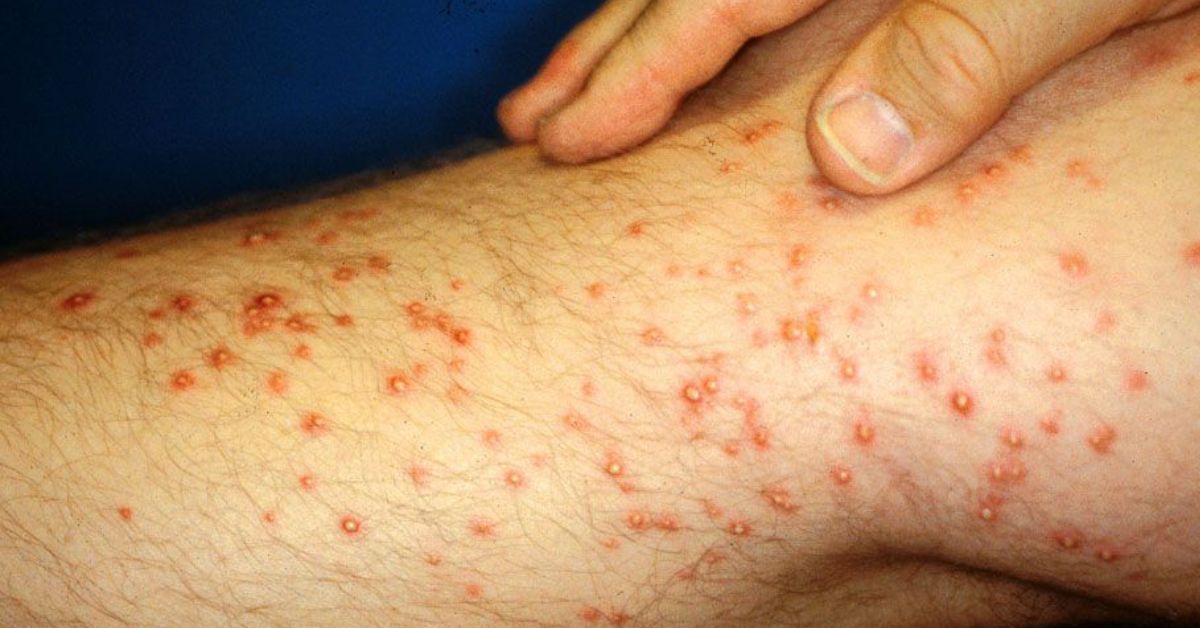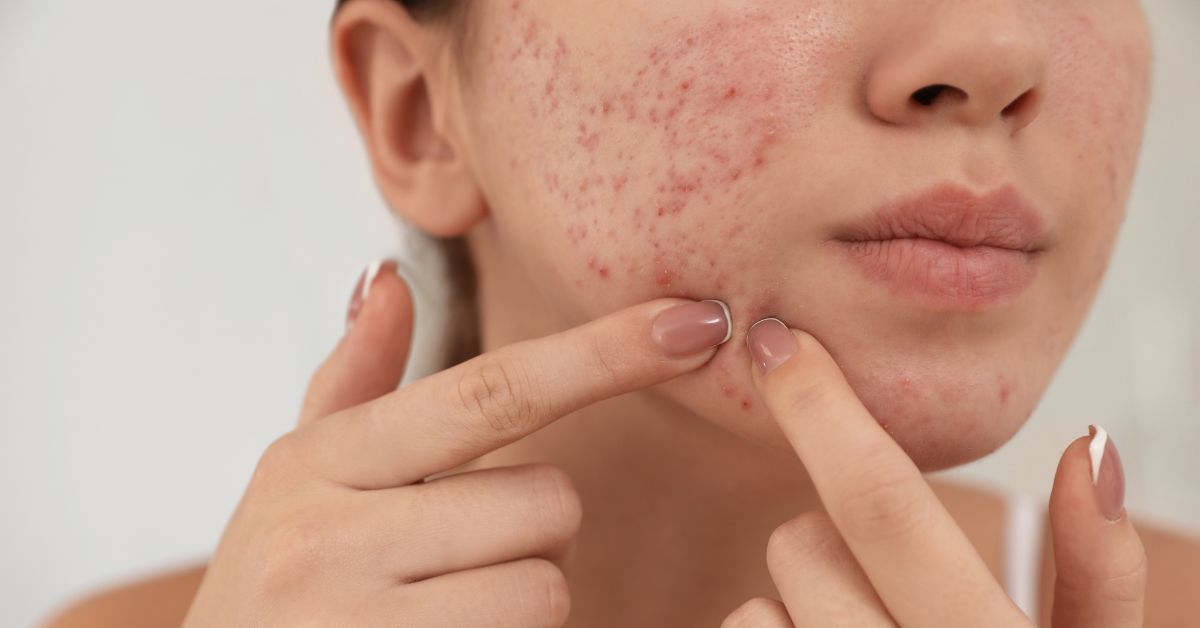Hormonal acne is a type of acne that occurs due to fluctuations in hormone levels in the body, leading to cosmetic issues on the face. So, “what is hormonal acne?” and how is it treated? Let’s explore these questions in the following article!
What is Hormonal Acne?
“What is hormonal acne?” is a common question among many women.
Hormonal acne, also known as cystic acne, is a common dermatological issue caused by changes in hormone levels in the body. This condition affects people of all ages but is most prevalent during adolescence, in women before and after childbirth, during perimenopause, menopause, and throughout the menstrual cycle. During specific phases of life, the body undergoes significant changes, disrupting the balance of endocrine hormones and leading to the formation of hormonal acne.
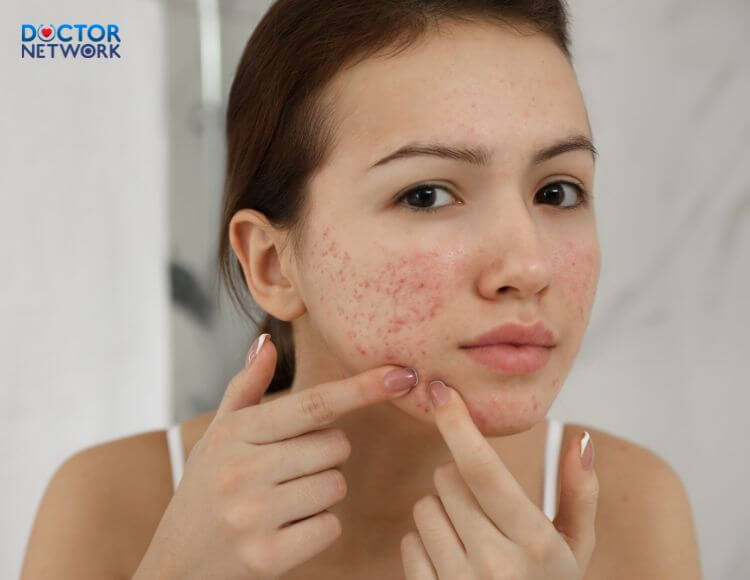
Hormonal acne is a prevalent dermatological issue
Hormonal acne typically appears in the T-zone, including the forehead, nose, and chin during adolescence. For adults, acne may occur in the lower part of the face, including the jawline area. Types of acne can include blackheads, whiteheads, and cysts. Hormonal acne may cause issues such as generalized skin inflammation, increased sweat and sebum production from pores, blocked hair follicles, and conditions favorable for the growth of Propionibacterium acnes bacteria, contributing to acne.
Causes of Hormonal Acne
Four main factors play crucial roles in the development of cystic acne, with endocrine disruption being a central factor.
1. Increased sebum production due to endocrine system disruption.
2. Proliferation and accumulation of bacteria on the skin, causing clogged pores and inflammatory acne.
3. Immune system response to bacteria, resulting in inflammation.
4. Clogged hair follicles creating favorable conditions for the formation of cystic acne.
Additional causes may include:
- Polycystic ovary syndrome (PCOS).
- Stress and fatigue. Unhealthy diet and lifestyle.
- Excessive use of skincare products.
- Side effects of certain medications, such as steroids.
Facing hormonal acne requires consulting dermatologists at professional healthcare facilities to receive advice and choose appropriate treatment methods. This helps effectively eliminate acne and prevents the risk of recurrence.
Symptoms of Hormonal Acne
Whiteheads, blackheads, cysts, nodules, and rough spots are common manifestations of hormonal acne. Typically, whiteheads and blackheads are not painful, inflamed, or swollen. However, when inflamed, they may develop into cysts or pustules.
Hormonal acne mostly appears on the face, but it can also manifest in various areas such as the neck, back, cheeks, jawline, chin, and other regions. Hormonal acne may be accompanied by symptoms such as menstrual irregularities or endocrine issues like excess androgen levels in women.
Treatment of Hormonal Acne
1. Traditional Treatment Methods
Experts confirm that severe hormonal acne cannot be effectively treated with standard face washes or creams. This is because cystic acne often presents as nodules forming deep under the skin, beyond the reach of most conventional medications and topical creams.
Thus, treating hormonal acne often requires applying methods of internal medication to balance hormone levels and cleanse the skin from within. Below are some traditional hormonal acne treatment methods:
- Oral Contraceptives: Oral contraceptive pills, especially those containing ethinyl estradiol combined with drospirenone, norgestimate, or norethindrone, can help balance hormone levels in the body and reduce hormonal acne, particularly during the ovulation phase of the menstrual cycle. However, it’s important to note that oral contraceptives are not suitable for individuals with a history of blood clots, high blood pressure, or breast cancer.
- Anti-Androgen Medications: Anti-androgen medications work by reducing the production of the male androgen hormone. Aldactone is one such medication, primarily used to treat hypertension but also effective in reducing androgen production, helping stabilize hormone levels.
- Retinoids: For mild hormonal acne, topical medications containing retinoids may be used. Retinoids, derived from vitamin A, are often available in the form of creams or gels. It’s crucial to consistently apply sunscreen when using retinoids, as they can increase sensitivity to sunlight.
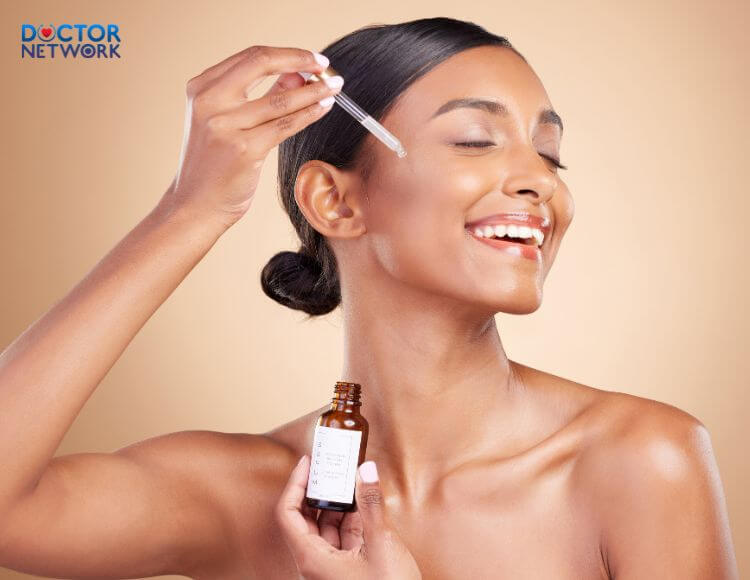
For mild hormonal acne, topical medications containing retinoids can be used
2. Natural Treatment Methods
In some cases, hormonal acne treatment may involve the use of products derived from natural sources to alleviate mild symptoms.
Natural treatment methods often have fewer severe side effects than traditional approaches, but their effectiveness may not always meet expectations. Here are some natural products used for hormonal acne treatment:
- Green Tea Oil: Green tea oil primarily works by reducing inflammation, the main cause of cystic acne. Research has indicated that using a cream containing 5% green tea oil can reduce symptoms of mild to moderate hormonal acne. Green tea oil is found in many skincare products such as face washes and toners. When used in its pure form, it should be diluted with carrier oils like coconut or olive oil before applying to acne-prone areas.
- Alpha Hydroxy Acid (AHA): AHA is a natural acid derived from citrus fruits like oranges and lemons. AHA helps remove dead skin cells that clog pores and minimizes acne formation. Skincare products containing AHA, such as masks and over-the-counter creams, are popular choices. Similar to retinoids, AHA increases skin sensitivity to sunlight, so using sunscreen during AHA acne treatments is essential.
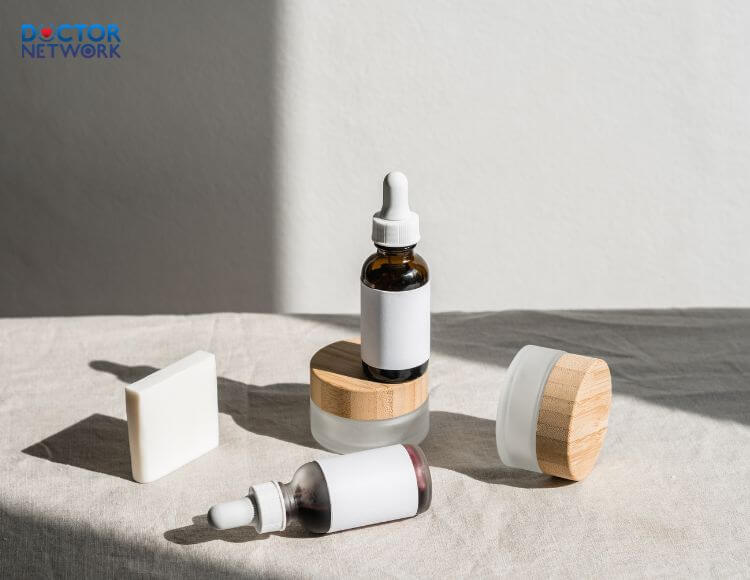
AHA helps eliminate dead skin cells that can clog pores and minimizes the formation of acne
- Green Tea (Oral Consumption): Daily consumption of green tea combined with skincare and hygiene practices can improve skin conditions, promoting healthy skin and reducing acne.
This article provides comprehensive information about “what is hormonal acne” its causes, symptoms, and treatment methods. Therefore, patients should not attempt self-treatment by squeezing pimples or following online guidelines. Instead, seeking advice and timely treatment from specialized Dermatology – Aesthetic Dermatology healthcare facilities is crucial for the safe and effective restoration of healthy and beautiful skin.
Kiểm Duyệt Nội Dung
More than 10 years of marketing communications experience in the medical and health field.
Successfully deployed marketing communication activities, content development and social networking channels for hospital partners, clinics, doctors and medical professionals across the country.
More than 6 years of experience in organizing and producing leading prestigious medical programs in Vietnam, in collaboration with Ho Chi Minh City Television (HTV). Typical programs include Nhật Ký Blouse Trắng, Bác Sĩ Nói Gì, Alo Bác Sĩ Nghe, Nhật Ký Hạnh Phúc, Vui Khỏe Cùng Con, Bác Sỹ Mẹ, v.v.
Comprehensive cooperation with hundreds of hospitals and clinics, thousands of doctors and medical experts to join hands in building a medical content and service platform on the Doctor Network application.
















